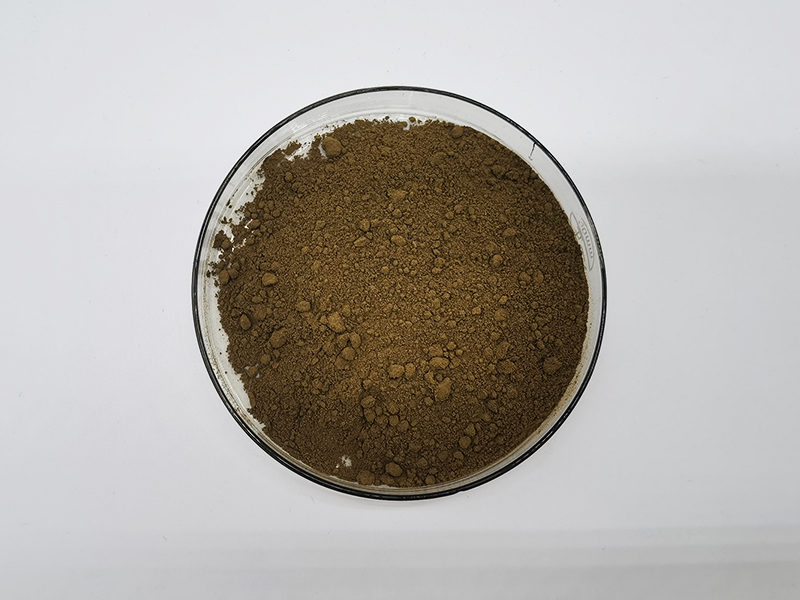Amentoflavone is a bioactive compound found in several plants, including Gingko biloba, Selaginella tamariscina, and others. It has drawn scientific interest due to its potential health benefits and pharmacological activities. Here’s a summary of its efficacy and actions based on current research:
Pharmacological Actions:
1.Antioxidant Properties:
Amentoflavone exhibits strong antioxidant effects, which help neutralize harmful free radicals in the body. This property is important in protecting cells from oxidative stress, which is implicated in various diseases including cancer and neurodegenerative disorders.
2.Neuroprotective Effects:
Studies suggest that amentoflavone may have neuroprotective properties, potentially benefiting conditions such as Alzheimer’s disease. It has been shown to inhibit beta-amyloid aggregation, a hallmark of Alzheimer’s pathology.

3.Anti-inflammatory Activity:
Amentoflavone possesses anti-inflammatory effects by modulating various inflammatory pathways. This makes it potentially useful in conditions involving chronic inflammation, such as arthritis and inflammatory bowel diseases.
4.Anticancer Potential:
Research indicates that amentoflavone exhibits anticancer properties through multiple mechanisms, including inducing apoptosis (programmed cell death) in cancer cells and inhibiting their proliferation. It has shown promise against various types of cancer cells in experimental studies.
5.Anxiolytic and Antidepressant Effects:
Some studies suggest that amentoflavone may have anxiolytic (anti-anxiety) and antidepressant effects by interacting with neurotransmitter systems in the brain, such as serotonin and GABA receptors.
6.Cardioprotective Effects:
Amentoflavone has been investigated for its potential benefits in cardiovascular health. It may help protect against heart disease by reducing oxidative stress, inflammation, and improving lipid profiles.
Potential Uses:
Memory and Cognitive Function: Due to its neuroprotective effects, amentoflavone could potentially support cognitive function and memory, although clinical studies in this area are still limited.
Anti-aging: Its antioxidant properties contribute to potential anti-aging benefits by protecting cells from damage caused by free radicals.
Skin Health: Topical applications of amentoflavone have been explored for their potential in dermatology, including for its anti-inflammatory and antioxidant effects.

Safety and Considerations:
Amentoflavone is generally considered safe when used appropriately, but as with any bioactive compound, it should be used with caution, especially in high doses or for prolonged periods.
More clinical studies are needed to fully understand its efficacy, safety profile, and potential drug interactions.
In conclusion, amentoflavone shows promise as a natural compound with diverse pharmacological actions, particularly in antioxidation, neuroprotection, anti-inflammation, and potentially in combating certain cancers. Ongoing research aims to further elucidate its therapeutic potential and optimize its use in various health conditions.
